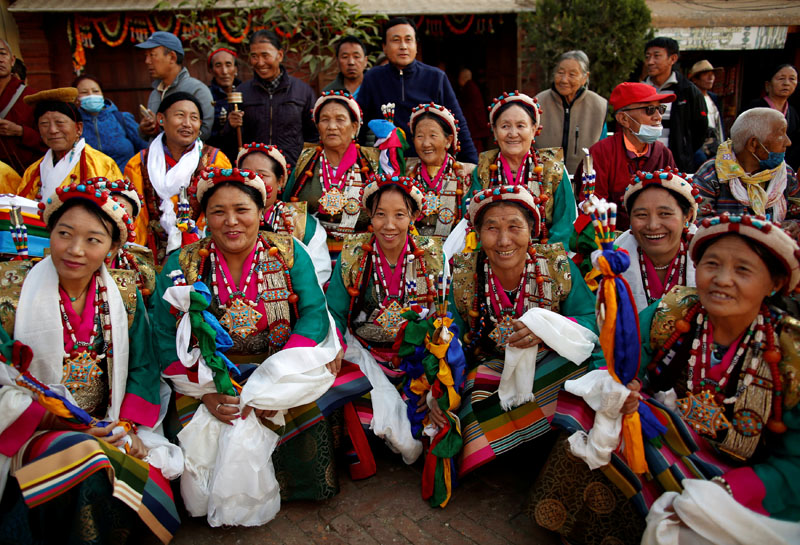US Congressmen urge govt not to sign treaty
Kathmandu, November 24
United States Congressmen James P McGovern and Christopher H Smith, co-chairs of the Tom Lantos Human Rights Commission, have released a letter to Nepal’s Ambassador to US urging the Government of Nepal to fully protect the human rights of Tibetans in Nepal.
According to a press release issued by Tom Lantos Human Rights Commission of the US Congress, the letter was sent to Government of Nepal expressing concern about the deportation to China of six Tibetans who crossed into Nepal from China in September, in ‘apparent violation of Nepal’s obligation of non-refoulement.’
The co-chairs were joined by six other Members of Congress including Chairman Eliot L Engel and ranking member Michael T McCaul of the House Foreign Affairs Committee, Chairman David Price and Co-chair Vern Buchanan of the House Democracy Partnership, and Reps Pramila Jayapal and Steve Chabot.
The letter raised the issues of crackdown on the Tibetan community at the time of Chinese President Xi Jinping’s October visit to Nepal, ‘the worrying prospect of an extradition treaty between Nepal and China, the increasingly stringent restrictions on freedom of assembly and expression suffered by Tibetans in Nepal and the essentially stateless status of many Tibetans.’
They urged Nepal to halt deportation of Tibetans, refrain from use of preventive detention and register all Tibetan refugees living in Nepal. “These steps would ensure that Tibetans’ human rights would be fully protected in keeping with Nepal’s international obligations and moral imperatives as a multi-ethnic, multi-faith society,” the US Congressmen said in their letter. The letter said when six Tibetans arrived on foot at Legme on September 5, Nepalese border police arrested the refugees, took them to Simikot, in Humla district, and turned them over to Chinese border police the same evening.
“This was done even though Nepal is bound by customary international law to not return people to a place where they may face persecution, which is clearly the case for Tibetans in China.”
These actions, the US Congressmen said, appear to be a violation of the longstanding ‘Gentlemen’s Agreement’ between Nepal and the UN Refugee Agency (UNHCR) to protect Tibetan refugees in transit.
“Nepal’s adherence to its obligations in this regard remains a priority interest for Congress, as it was in 2003 when a trade bill regarding the Nepalese garment industry was withdrawn in the Senate after Nepal returned 18 Tibetan refugees to China,” the letter added. The letter said prior to Xi Jinping’s Nepal visit, Nepal Police cracked down on Tibetans in Nepal, closing monasteries and detaining a number of Tibetans.
“According to witnesses, police went to the homes of Tibetans to apprehend them. They locked down the Jawalakhel Tibetan refugee settlement and closely monitored Tibetan homes for the elderly,” the letter added, “Nepal also reportedly prevented more than 30 Tibetans residing in Nepal from returning from travel to Dharamsala, until Xi departed.”
They said they were disappointed and concerned that the joint statement between China and Nepal issued during Xi’s trip expressed hope for an early conclusion of the Treaty on Extradition’ They said recognising China’s longstanding repression of Tibetans within its borders, they feared an extradition treaty would
be used to persecute Tibetans living in Nepal.
They said Nepal’s stated determination not to allow any ‘anti-China activities on its soil’ cannot justify restrictions on fundamental civil and political rights. “Nor is it tenable that many Tibetans who fled to Nepal after 1989 are essentially stateless, whereas those Tibetans who arrived between 1959 and 1989 were recognised and registered as refugees by your government,” the US Congressmen said in their letter.
Foreign ministry officials could not be reached for comments.






